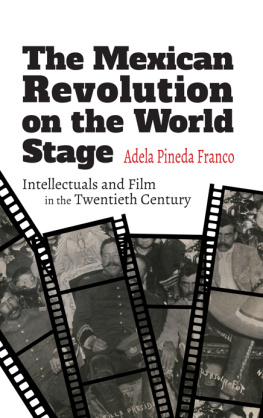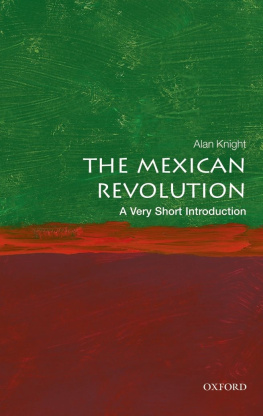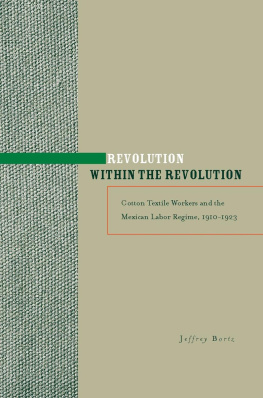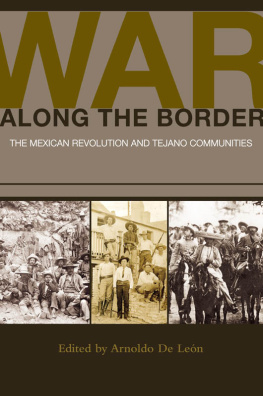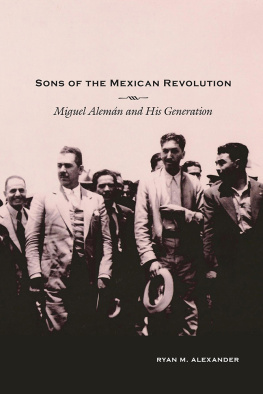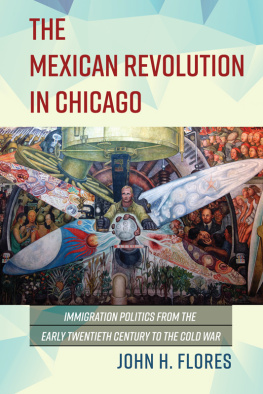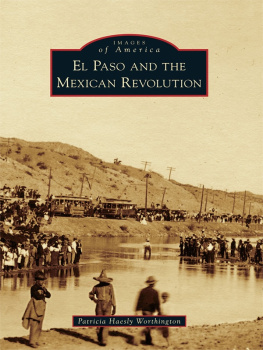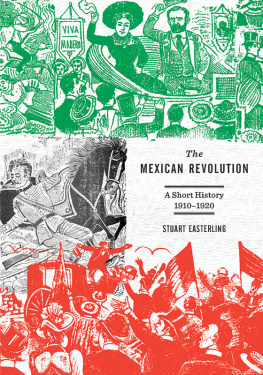Cover image: Villa en la silla presidencial. Photo courtesy of the Getty Research Institute.
Published by State University of New York Press, Albany
2019 State University of New York
All rights reserved
Printed in the United States of America
No part of this book may be used or reproduced in any manner whatsoever without written permission. No part of this book may be stored in a retrieval system or transmitted in any form or by any means including electronic, electrostatic, magnetic tape, mechanical, photocopying, recording, or otherwise without the prior permission in writing of the publisher.
For information, contact State University of New York Press, Albany, NY
www.sunypress.edu
Library of Congress Cataloging-in-Publication Data
Names: Pineda Franco, Adela Eugenia, 1964 author.
Title: The Mexican Revolution on the world stage : intellectuals and film in the twentieth century / Adela Pineda Franco.
Description: | Series: SUNY series in Latin American cinema | Includes bibliographical references and index.
Identifiers: LCCN 2018043448 | ISBN 9781438475615 (hardcover : alk. paper) | ISBN 9781438475608 (pbk.) | ISBN 9781438475622 (ebook)
Subjects: LCSH: MexicoHistoryRevolution, 19101920Motion pictures and the revolution. | Nationalism in motion pictures. | War filmsHistory and criticism.
Classification: LCC F1234.5 .P56 2019 | DDC 791.43/658720816dc23
LC record available at https://lccn.loc.gov/2018043448
10 9 8 7 6 5 4 3 2 1
To my beloved parents, Susana Franco Gonzlez
and Carlos Pineda Linton (in memoriam)
And to my dear family, Susana Camille Plotts-Pineda,
Boris Corredor, and Santiago Corredor-Vergara
Last, to Charlie and Bichita, for the joy they bring to my life
Acknowledgments
I am indebted to numerous persons and institutions, without whose support and input I would not have been able to finish this book. Special thanks go to Susana Plotts-Pineda for being the first person to read the manuscript, not only as a copyeditor, but also as an attentive reader whose thoughtful insight helped bring greater clarity and incisiveness to the development of my arguments. I also thank Boris Corredor and Santiago Corredor-Vergara for their invaluable insights on the overall design of the book cover. If the ideas in this book were able to come to a full life on paper, it is also thanks to the intellectual generosity of several friends and colleagues. I am particularly indebted to Ignacio M. Snchez Prado, Pedro ngel Palou, Pablo Piccato, Jorge Aguilar Mora, Juan Pablo Dabove, Horacio Legrs, Max Parra, Mauricio Tenorio, Claudio Lomnitz, Adolfo Castan, Bruno Bosteels, Carl Good, Eduardo de la Vega Alfaro, Michael K. Schuessler, John Mraz, Julio Ramos, Hctor Hoyos, Ximena Briceo, Lucia Cardone, Alessandro Rocco, and Pierpaolo Campana. I am also grateful to my students at Boston University: Ana Bazdresch Barquet, Guillermo Espinosa Estrada, Alina Pea Iguarn, Edgar Meja, Catalina Donoso, Victoria Livingstone, Alexis Ortiz, Nadia Mann, Alejandra Cornejo, Magdalena Malinowska, Isabel Castro Escudero, Alia Wong, Sara Garca Santos, Edgardo Tormos Bigles, Jos Luis Nogales Baena, David Shames, Gerardo Cruz Gonzlez, Cecilia Weddell, Stephen Krawek, and, at MIT, Joel Yuen Zhou. They all helped me continue to find meaning in this extensive project with their boundless intellectual curiosity and encouragement. A special acknowledgment goes to Christopher Middleton (in memoriam), Enrique Fierro (in memoriam), Edward Simmen (in memoriam), Waldo Lloreda, Naomi Lindstrom, Mabel Moraa, and Anbal Gonzlez Prez for their immense generosity and guidance throughout the years.
I have been lucky enough to count on the ongoing support of my colleagues at the Romance Studies Department and the Center of Latin American Studies, for which I thank them dearly. I am particularly grateful to Christopher Maurer for the many insightful comments on many of my publications and to Odile Cazenave for her unconditional support during challenging times. I was able to visit several archives and present advances of this work in many congresses thanks to the institutional support of the Department of Romance Studies, the Center for the Humanities, the Pardee School of Global Studies, and the College of Arts and Sciences at Boston University.
My gratitude also goes to Jimena Obregn Iturra and Nstor Ponce at the University of Rennes, Diana Hernndez Surez and Ingrid Simson at the Institute for Latin American Studies of Freie Universitt, Berlin, Javier Prez Siller, Alejandro Ramrez Lmbarry and Francisco Ramrez Santacruz at the Benemrita Universidad Autnoma de Puebla, Jacobo Sefam at Middlebury College, Oswaldo Zavala at CUNY, Susan Antebi at the University of Toronto, Manuel Gutirrez at Rice University, Magdalena Mieri at the National Museum of American History, Bernd Hausberger and Raffaele Moro at the Colegio de Mxico, lvaro Ruiz Abreu at Universidad Autnoma Metropolitana, Laura Torres and Dylon Robbins at New York University, Anbal Gonzlez Prez at Yale University, Mauricio Tenorio at the University of Chicago, Glen Goodman at the University of Illinois Urbana-Champaign, and Jorge Quintana-Navarrete and Mary Coffey at Dartmouth College. They granted me the opportunity to present some of the topics related to this larger work at the above-mentioned institutions. I am particularly thankful to UC Mexicanistas and Sara Poot Herrera for providing a platform for intellectual growth and community in Santa Barbara, California, that extends beyond academic careerism. Viviane Mahieux, Fernando Fabio Snchez, Gerardo Garca Muoz, Bernd Hausberger, Raffaele Moro, Jaime Marroqun, Magdalena Mieri, Jimena Obregn, and Marco Martnez gave me the opportunity to explore the global dimension of the Mexican Revolution at large when I joined their efforts in developing a wide range of collective publications. My deep appreciation goes to all of them as well.
My previous work on John Steinbeck forms the basis of the first two chapters of this book. In 2016, I was fortunate to receive the National Malcolm Lowry Essay Prize (Instituto Nacional de Bellas Artes, 2016) for my sixty-page essay Las travesas de John Steinbeck por Mxico, el cine y las vicisitudes del progreso, subsequently published by the Fondo Editorial del Estado de Morelos, under the series Coleccin Premio Malcom Lowry. I thank Mauricio Montiel Figueiras, Lidia Camacho, Cristina Faesler Bremer, Cristina Rivera Garza, Alejandro Toledo, and Alejandro Garca Neria, authorities and jurors of the Malcolm Lowry Award, as well as Sergio David Lara Castaeda, editor in charge of the publication. This award gave me the inspiration to develop in depth not only my work on Steinbeck in Steinbeck y Mxico. Una mirada cinematogrfica en la era de la hegemona estadounidense (Bonilla y Artigas 2018), but to expand my perspective on intellectuals and the global dimension of the Mexican Revolution, which is the topic of this book. I wrote an article on Raymundo Gleyzers unorthodox appropriation of the Mexican Revolutions silent-film footage thanks to the invitation of ngel Miquel and David Wood, visiting editors of a special issue of Vivomatografas: Revista de estudios sobre precine y cine silente en Latinoamrica

